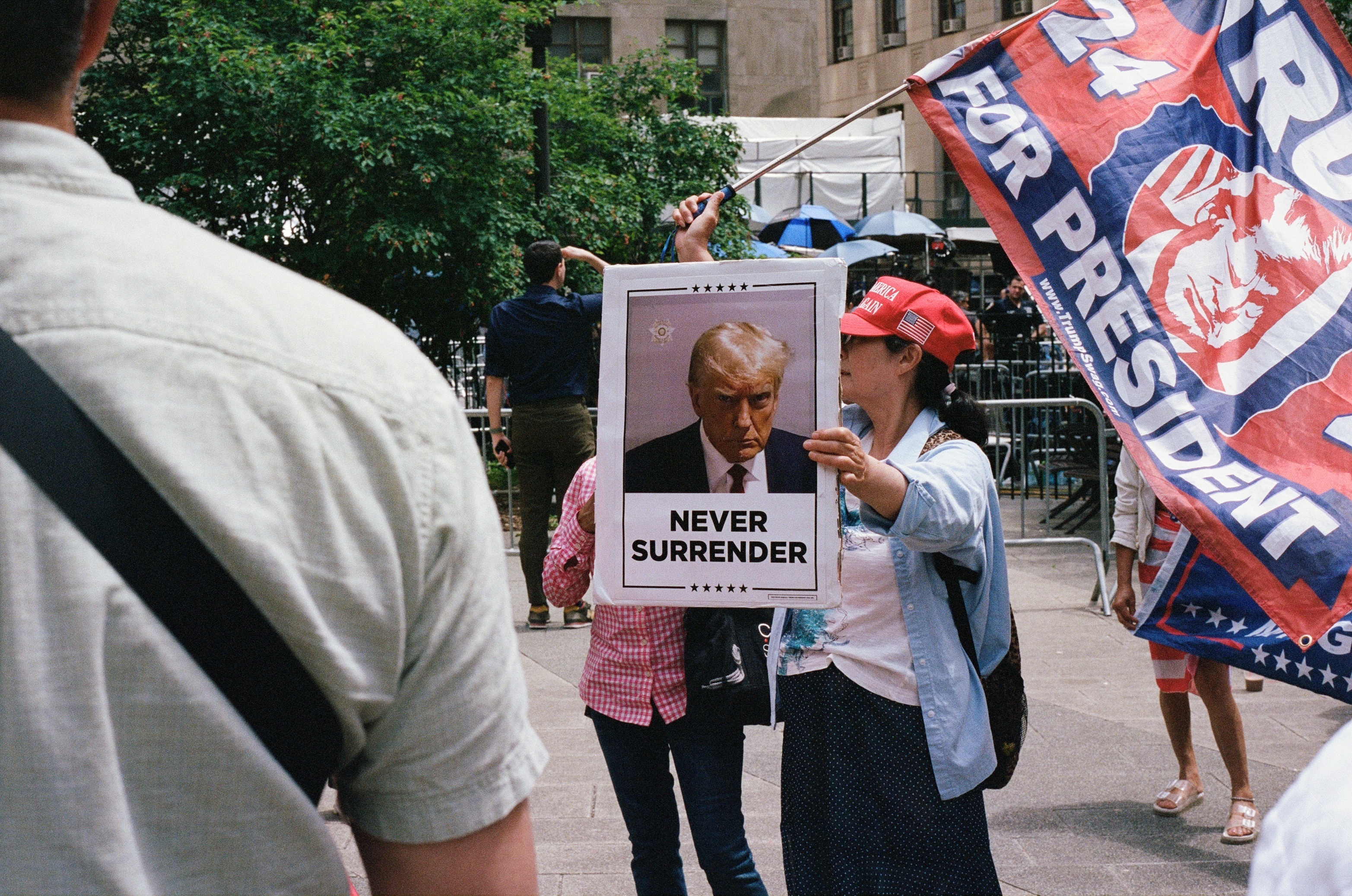Trump’s Muslim Ban Isn’t Just Wrong, It’s a Terrible Idea
At various points in his campaign, Republican Presidential nominee Donald Trump has called for a temporary ban on all Muslim (including U.S.
Published by The Lawfare Institute
in Cooperation With

At various points in his campaign, Republican Presidential nominee Donald Trump has called for a temporary ban on all Muslim (including U.S. citizens) travel to the United States, a ban on foreign Muslim travel to the United States, a ban on travel to the United States from countries with a high risk of terrorism, and countless iterations along that continuum. While Trump’s original ban still appears on his website, on Monday, Trump’s Vice Presidential candidate Mike Pence indicated that he favored the modified formulation of suspending immigration for all individuals—regardless of religion—from countries which have been “compromised by terrorism.”
Much of the criticism of Trump’s Muslim ban—and Pence’s shift to geography over religion—evinces the belief that targeting individuals based on religion is immoral. And it certainly is. But it bears noting that, beyond betraying the principles of our founding documents, Trump’s proposal to ban Muslims is also an altogether dreadful idea for a host of practical and strategic reasons.
First, there is the question of how exactly we might define or verify an individual’s religion. Do we simply ask and presume individuals wishing to undertake violence will be compelled to be honest on immigration documents? Are Customs and Border Protection or the Transportation Security Administration to administer tests or review open source materials evidencing participation in religious activity? Would individuals be permitted to renounce their religion and thereby gain entry to the United States? Thinking through the specifics bring into sharp relief precisely how invidious the methods required to put this policy into action might be.
Of course, the suggestion of banning Muslim-Americans from reentering their own country is absurd on its face. It is inconceivable that such a ban would pass constitutional muster, and even Trump himself has walked back his proposal to either discriminate against only foreign Muslims or to broadly ban all individuals from “compromised” countries. Importantly, the purely geographic ban would block immigration from France, Germany, Belgium, and elsewhere—all countries with recent histories of terrorist attacks.
But immigration is a two-way street. Take France, for example. Trump has advocated “extreme vetting” for individuals wishing to enter the U.S. from France. Currently, France participates in the Visa Waiver Program (VWP) with the United States. Under the VWP, citizens from 38 countries are able to travel visa-free from almost wherever they are to the United States, and American citizens enjoy reciprocal benefits with those 38 partners. The hallmark of the VWP is reciprocity, so under Trump’s plan, U.S. citizens can scrap their Paris vacations plan as well.
Reciprocity is not only about facilitating travel to and from the United States; it is also a useful soft power tool. The Immigration and Nationality Act and the Homeland Security Act codify the standards that the 38 countries must meet and sustain in order to be admitted to the VWP and sets forth a high and stringent bar for aspiring countries to reach as well. And there are a number of countries that the U.S. counts as allies, including Brazil, Poland and Romania, that do not currently participate in the program. They, along with others, have been actively working for years to try to clear all of the hurdles necessary for admission. Because VWP requirements are a feature of U.S. law, those standards are a necessary enforcement tool to change the security and immigration postures of countries that wish to join and to ensure these nations meet global standards.
VWP standards do not only hold sway in countries in relation to which the U.S. is relatively strong and which it might otherwise be able to influence. The standards are also an important tool in influencing our closest and most formidable allies. Israel, for example, is one of the half dozen or so countries striving for VWP membership. In order to be included in VWP, countries must meet criteria on aviation and border security and technical requirements for passports among other stipulations. The most critical baseline measure is that all U.S. travelers to a VWP country must receive reciprocal treatment to what foreign VWP travelers would receive in the United States, including the stipulation that our Customs and Border Protection officers do not screen entrants to the U.S. based solely on race, religion, gender or other protected categories. While Ben Gurion airport in Tel Aviv is an exemplar of security operations in a part of the world where international aviation is an outsized target, Israeli security officials engage in a level of profiling that American policy makers cannot reconcile with U.S. laws or values. The security protocols at Ben Gurion often focus on a traveler’s religion or ancestry, and have led to the unfair treatment of many American travelers of the Muslim faith and of Palestinian descent. The topic is a frequent source of friction between American diplomats and their Israeli counterparts.
The U.S. has long acknowledged the heightened security challenges in Israeli aviation security. However, the U.S. government adheres to the VWP in part to ensure that no American traveler is unduly searched, questioned or detained based on criteria that have no direct bearing on the danger they might pose. Because this stipulation is codified in law and enforced across all VWP members and aspirants, the Israeli government has publicly acknowledged a change in its policy with respect to American travelers. This progress on a difficult point of disagreement among allies should be hailed as a significant achievement for the Obama administration.
Trump’s immigration proposals undo all that progress. First, if we abandon our own values we undermine our ability to project them worldwide. And we sabotage the Departments of State and Homeland Security’s ability to enforce this program and protect our citizens overseas from unfair discrimination. Second, and perhaps more importantly, Trump’s proposal either to ban Muslims outright or to implement “extreme vetting” jeopardizes the entire VWP. Trump’s proposals, whether they discriminate on religion or use geographic-proxies for discrimination, violate the rule of reciprocity by not treating citizens from VWP signatory countries in the same manner we treat our own citizens and expect VWP members to treat them. And those partners could be entitled to seek to re-impose visa requirements on our citizens. This would have grave impacts for American businesses with strong connections to EU countries, for example, not to mention the consequences for tourist industries in places like London, Paris, Rome or Tokyo.
Certainly, it is important to counter these proposals as contrary to our values, our Constitution, and our sense of right and wrong. But for those less moved by high-minded ideals, experts should point out why this is also a dim-witted idea that harms American travelers, the global economy, and our ability to project power and achieve change.




